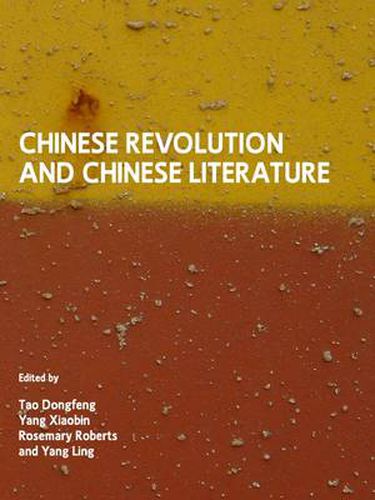Readings Newsletter
Become a Readings Member to make your shopping experience even easier.
Sign in or sign up for free!
You’re not far away from qualifying for FREE standard shipping within Australia
You’ve qualified for FREE standard shipping within Australia
The cart is loading…






This volume has brought together essays to explore, analyse and interpret the revolutionary tradition in modern Chinese literature over the past century from various angles. The authors examines the bodily or carnal dimension, especially the hidden implication of sexual passion, in revolutionary literature, formulate feminist critiques of the conception of women in literary expressions of revolution, explore the function of revolution as historical discourse and in historiographical representation, and discuss the reworking of revolutionary classics in recent literary and artistic endeavours. Here, revolution (in history and in literature) is conceptualized neither as an unquestionably progressive and creative force for a new world, nor an absolutely pejorative concept that necessarily leads to sociopolitical turmoil and tragedy. Insofar as postrevolutionary writings cannot but reappropriate the revolutionary spirit as their unavoidable and inseparable traumatic kernel, studies in revolutionary literature and culture, too, go through the zigzag experience of revolution in order to scrutinize its complex implications.
$9.00 standard shipping within Australia
FREE standard shipping within Australia for orders over $100.00
Express & International shipping calculated at checkout
This volume has brought together essays to explore, analyse and interpret the revolutionary tradition in modern Chinese literature over the past century from various angles. The authors examines the bodily or carnal dimension, especially the hidden implication of sexual passion, in revolutionary literature, formulate feminist critiques of the conception of women in literary expressions of revolution, explore the function of revolution as historical discourse and in historiographical representation, and discuss the reworking of revolutionary classics in recent literary and artistic endeavours. Here, revolution (in history and in literature) is conceptualized neither as an unquestionably progressive and creative force for a new world, nor an absolutely pejorative concept that necessarily leads to sociopolitical turmoil and tragedy. Insofar as postrevolutionary writings cannot but reappropriate the revolutionary spirit as their unavoidable and inseparable traumatic kernel, studies in revolutionary literature and culture, too, go through the zigzag experience of revolution in order to scrutinize its complex implications.